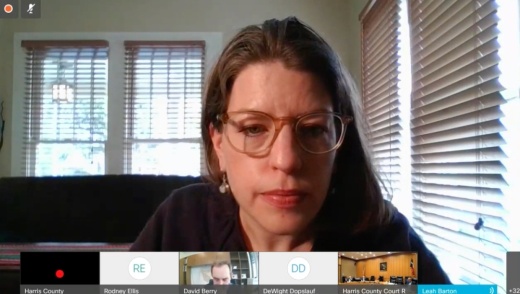In a split vote, Harris County commissioners pledged a maximum of $29.5 million for the second phase of Houston nonprofit Coalition for the Homeless’s COVID-19 housing project on Jan. 25.
The Community COVID Housing Program is a joint effort between the city of Houston, Harris County and the Coalition for the Homeless, and it was first launched in July 2020. The program provides temporary rental assistance, permanent housing and mental health services among other resources to homeless individuals during the ongoing pandemic.
“I think Houston and Harris County have been recognized nationally for taking a housing-first approach,” said Leah Barton, who serves as Harris County’s managing director of strategic initiatives. “And that really is the most successful model for housing people and then keeping them housed, as opposed to investing in a lot of transitional housing, temporary shelters.”
During the first phase of CCHP, 3,000 people have been housed and 7,000 households have been provided program services, Precinct 2 Commissioner Adrian Garcia said on Jan. 25.
The CCHP 2.0 will begin in June or July, according to Barton. Including funding previously pledged to the second phase, the county’s total contribution for the project will be $35 million, according to the Jan. 25 commissioners court meeting agenda.
“One of the things I want to do in this second phase of CCHP is really understand how people are becoming homeless and understand that pipeline—kind of where people are coming from so that we can think about some more preventative measures," Barton said. "But [I'm] excited to move forward and appreciate your support."
Precincts 3 and 4 commissioners Tom Ramsey and Jack Cagle voted against the Jan. 25 motion, with both voicing concerns about the project being funded by an American Rescue Plan Act grant.
“I supported the $5.5 million that we put into the first bite,” Cagle said. “And part of this was because we were dealing [with] and responding to what was going on with COVID[-19]. [Now] we're dealing with ARPA funds, which will run out.”
County leaders have not yet figured out who will pay for the project in two years, should the service continue, County Administrator David Berry said.
“We're certainly not creating a bunch of county positions that will have to continue being funded,” Berry said. “Now, obviously, when you do something for the community, and then the money runs out, there's always a discussion of who, if anyone, can pick up the slack there.”





